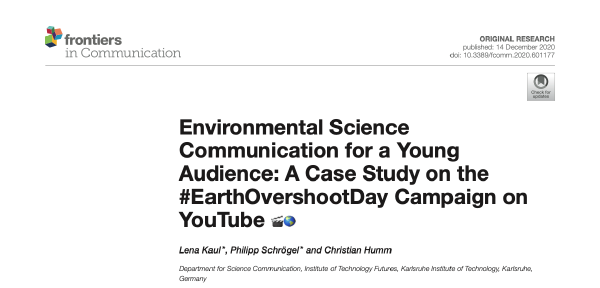
Talk: Preaching to the choir? Science communication and the audiences not reached
·151 words·1 min
I spoke at the Public Communication of Science and Technology Conference 2020+1 (PCST 2020+1) about not reached audiences in science communication. In the five-minute Insight Talk, I present the results from the project Science for All. The focus is on the typology of exclusion factors we have developed and the qualitative and quantitative data that underpins it.




